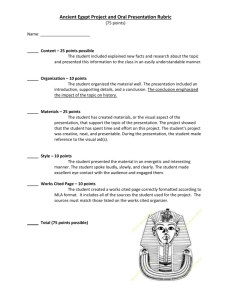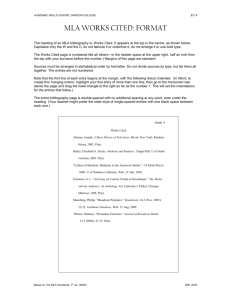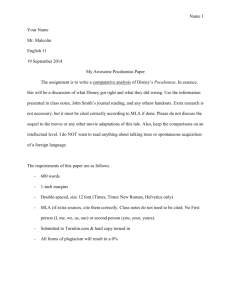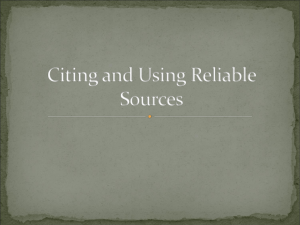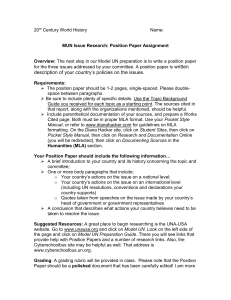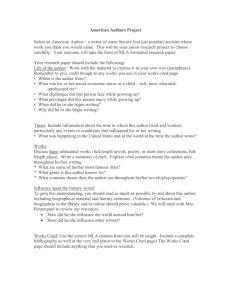AP LIT Senior Research Project What is an Essential Question?
advertisement
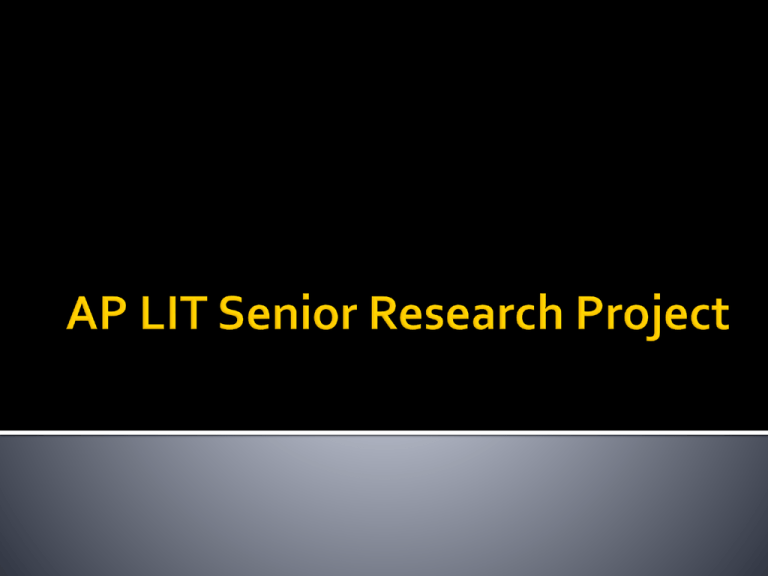
The results of your research should be more than just a regurgitation of the facts or a summary of other people’s ideas. They should be based on new ideas, explanation, analysis, and evaluation. The best way to ensure that your work is thoughtful and original is to pose an essential question. Source: http://www.whslibrary.com/askingessentialquestions.htm Samples: What do we learn about American society through its cultural depictions of Frankenstein’s creature and other social outcasts? Should we embrace scientific innovations because they will better the human condition, or have scientists and researchers gone too far? What do we learn about the lives of women in these texts? Essential questions have certain qualities: They point to the heart of a subject or topic, especially its controversies. They generate multiple plausible answers, perspectives, and research directionsleading to other questions. They cast old knowledge, ideas, texts in a new light; they make the familiar strange and the strange familiar. They lead to discovery and “uncoverage,” as opposed to “coverage.” This means that you don't need to know all the information on a particular topic, but know essential information well. Less is more. Less is better. Go in depth in your study instead of trying to cover a topic that is too broad. Essential questions develop further and deepen interest in a subject. They are provocative, enticing, and engagingly framed. Essential questions are higher-order, in Bloom's sense: they are always matters of analysis, synthesis, and evaluative judgment. You must “go beyond” the information given. Answers to essential questions cannot be found. They must be invented. Source: http://www.whslibrary.com/askingessentialquestions.htm Write a research paper in which you synthesize your own research and thinking on this topic with the material from Brave New World, Frankenstein, a choice film (such as Gattaca), and a choice novel. Sources – you will cite a minimum of eight sources. Four have already been chosen for you: Brave New World, Frankenstein, and Gattaca. The rest will come from your research: ▪ Three should be from credible, academic articles ▪ The final source is purely up to you. You will create an Annotated Works Cited Length: minimum of 5 pages (12 point font with one inch margins – MLA format). Papers shorter than five pages cannot earn more than half credit. Submit final to Turninin.com by due date. Clear your essential question and subsequent thesis statement with me By ________ Submit an Annotated Works Cited Page By April _______ Submit your final paper to Turn It In By May 1st An annotated Works Cited is a list of citations to books, articles, and documents. Each citation is followed by a brief (usually about 3 – 6 sentences) descriptive and evaluative paragraph, the annotation. The purpose of the annotation is to inform the reader of the relevance, accuracy, and quality of the sources cited. Source: http://www.library.cornell.edu/olinuris/ref/research/skill28.htm#what Your source information will be in traditional MLA format. The annotations follow each Works Cited entry, like so: American Beauty. Dir. Sam Mendes." Perf. Spacey, Kevin, Annette Benning, and Mena Suvari. Dreamworks: 1999, DVD. This film has as one of its characters a young girl who is on a cheerleading team. While that is not the focus of the film per say, there is a pivotal scene early on in the film that plays on traditional cheerleader stereotypes (i.e. that of a seductress/temptress). I plan to do a close reading of that scene to expose the director’s treatment of envy. Essential Question & Thesis Statement: 25 points Annotated Works Cited: The Works Cited page must be properly formatted in MLA style to receive full credit. 5 points per source + 10 points for correct MLA format = 50 points Research paper will be graded on the nine-point AP scale: 90 x 2 points = 180 points MLA format of the paper = 20 points You will submit your paper to TurnItIn.com. You will earn 25 points for SUCCESSFUL submission by the due date. Total: 300 points
